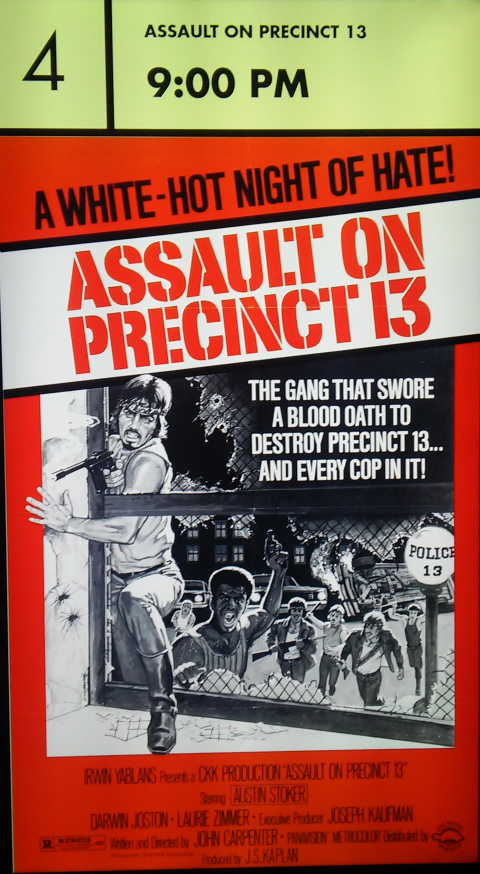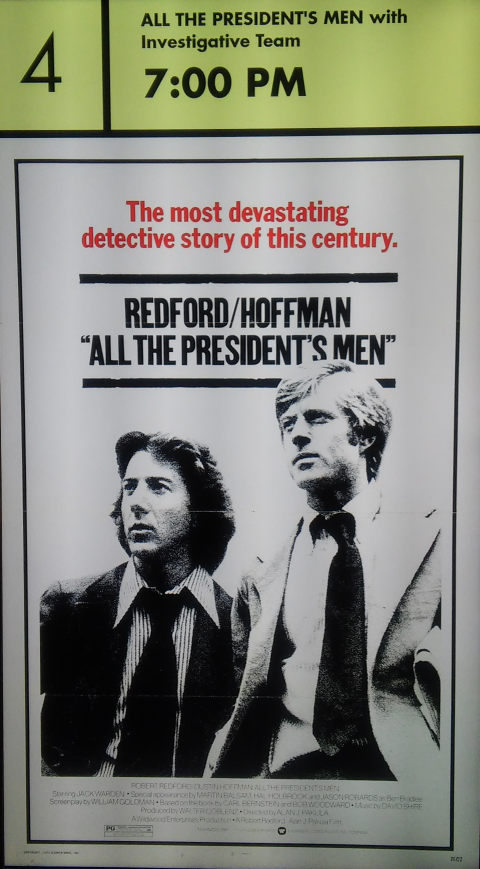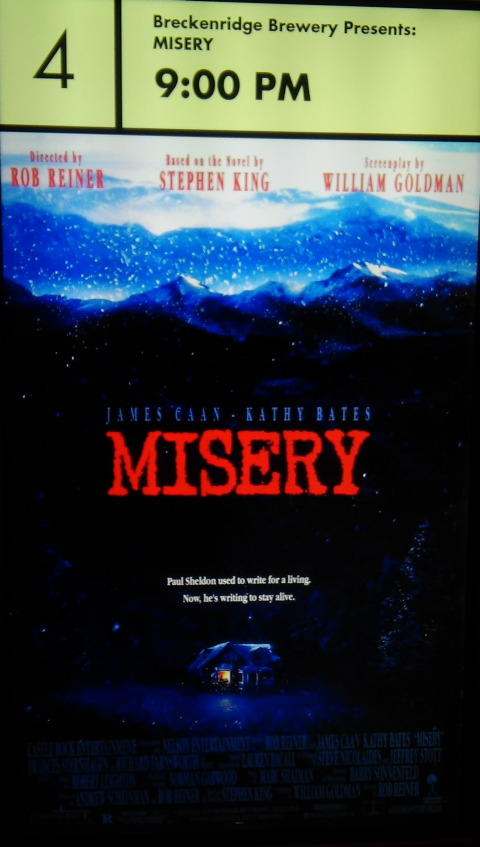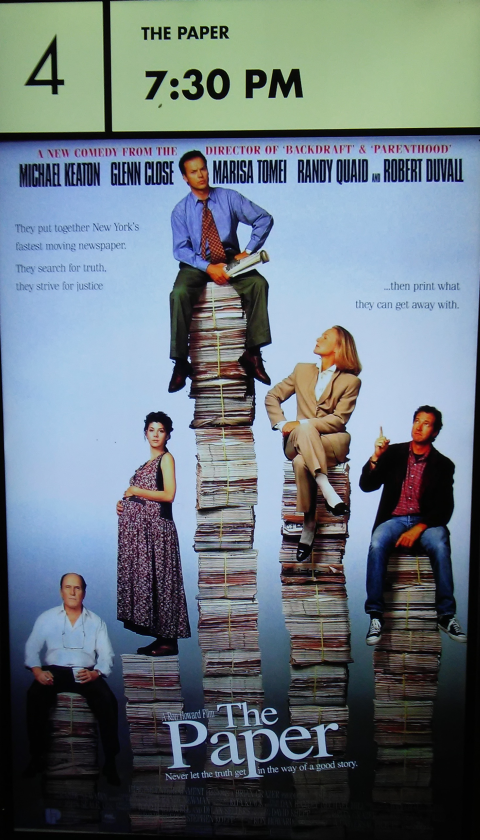Planes, Trains & Automobiles (1987)
It seems like every major holiday gets plenty of love from the motion picture industry, except Thanksgiving.
I mean, other than Blood Rage (aka Nightmare at Shadow Woods), that fake [TOTALLY NSFW] trailer from Grindhouse, and Prisoners, I can’t think of a single other movie that takes place around the true American holiday. And that’s not to say that this movie even is a Thanksgiving movie, because it’s really more about one man’s quest to get home for the holiday (and the traveling partner he happens to get stuck with).
I’m going to guess that Planes, Trains & Automobiles doesn’t hold up for everyone, but it still works for me, and if you’ve ever had a nightmare travelling experience, I’m guessing it’ll work for you, too. Somewhere, perhaps rotting away in a vault, is a two hour cut of this film that I’d love to see (you can tell because the trailer has a ton of stuff that’s not in the final cut), but the version we have available is a nice, tight ninety-minute comedy that never overstays its welcome, no matter how much our two leads get on each others’ nerves.
I know it’s cliche because I overuse it myself, but they don’t make movies like this much anymore. The comedy genre, not unlike horror, has been largely relegated to the discount bin, only being made if the studio can do it on the cheap. In contrast, this movie has scope, and a budget to back it up. After all, no airline, railroad, or rental car company would lend their likeness only to be depicted as incompetent, so the production had to essentially create their own.
But, hey, comedy comes down to comedy, right? Fortunately, John Candy and Steve Martin are at peak performance with their respective shticks (an over-talker for Candy and a curmudgeon for Martin), but they’re also both adept at keeping things real when the moment calls for it.
This is a very good comedy film (particularly one that doesn’t involve science fiction or supernatural elements) from a decade that’s chock full of good to great ones. It may leave you with more questions than answers (like, who is Del Griffith, really?), but I suppose it’s more about the journey than the destination.
Rating: ★★★★☆
Assault on Precinct 13 (1976)
I remember watching this on Netflix a while back and thinking it was just okay, but upon further review (perhaps having my expectations more properly calibrated), Assault on Precinct 13 is a pretty good little movie.
Taking huge inspiration from the Howard Hawks-directed, John Wayne-starring siege westerns (Rio Bravo, El Dorado, and Rio Lobo) and upgrading the setting to modern day (as of 1976) Los Angeles, 13 is the tale of a ragtag group consisting of a CHP lieutenant, a pair of secretaries, and a few prisoners, trapped inside a nearly-closed police station and fighting for survival against a seemingly endless storm of gang members bent on revenge.
It’s not a perfect movie, but I give it ample credit for squeezing as much out of its low budget as it possibly could have (especially that wonderful synth score), and there’s one scene in particular, love it or hate it, that few would dare to even try these days.
The action might be a bit clunky (although there is That One wonderful shot), but the tension is expertly built, and the characters are interesting enough to get you through. Even without much star power at work, I give Assault on Precinct 13 a solid recommendation (you know, just don’t expect Commando).
Rating: ★★★½
All the President’s Men (1976)
People will probably try to discredit me for saying this, but All the President’s Men doesn’t hold up that well.
Yes, it’s an important story in American history, and, yes, it demonstrates the value of a free and unfettered press, but, if you weren’t alive and conscious at the time of Watergate, there’s a lot you might miss.
I’m going to compare this movie to a similar one made nearly four decades later, that being Spotlight. Now, I admit, I may be generationally biased here, but, the way I see it, Spotlight assumes you don’t know anything about the story, so, as it plays out, things that are significant feel significant because the movie has explained why they are significant. All the President’s Men doesn’t necessarily play out like this, so, if you don’t know certain names, places, or abbreviations, things could fly right over your head without you even knowing.
However, the film does boast an impressive cast, Robert Redford in particular is wonderfully subtle, and, like Spotlight, the cinematography is probably underrated (lots of split diopter shots, which I’m always a fan of).
Rating: ★★★☆☆
Misery (1990)
Like All the President’s Men, Misery is a William Goldman screenplay adapted from an existing book.
Unlike All the President’s Men, nothing in Misery ever happened (that we know of).
I’ve said this before in relation to Coming to America, but everybody involved with Misery was firing on all cylinders. Rob Reiner was coming off of directing When Harry Met Sally, William Goldman’s previous screenplay was The Princess Bride (also directed by Reiner), James Caan gives a magnificent performance in something of a comeback role, and Kathy Bates skyrocketed into the public eye with her Oscar-winning portrayal of Annie Wilkes; not to mention Richard Farnsworth and Frances Sternhagen doing top-notch character work. Also, this was cinematographer Barry Sonnenfeld’s last movie as a director of photography before moving to the big director’s chair, and it’s some of his finest work; mostly claustrophobic (it’s of little surprise that Misery was recently adapted for the stage, given the mostly limited setting), but also panoramic when called for.
Many great thrillers are dark comedies at heart (Hitchcock knew this well, and the Coens are still doing it), and this one is no exception. As horrifying as things become, there’s usually a spoonful of sugar mixed in to keep things from veering into complete, well, misery territory.
Given the hit-or-miss nature of Stephen King film adaptations, Misery is clearly among the best (and Reiner hit paydirt twice, also directing Stand By Me).
It’s a work of art, plain and simple.
Rating: ★★★★½
The Paper (1994)
Ron Howard has made so many movies and worked with so many people that you probably don’t even know (or realize) half the stuff he’s directed.
The Paper likely falls into that category.
Howard’s filmography is largely dominated by Tom Hanks, but before they made their big Splash together (Oh, no. Am I turning into Gene Shalit?), there was another comedic actor who helped put “Ron Howard: Director” on the map, that being Michael Keaton (in another little movie you might not know called Night Shift).
I’m going to call The Paper a “Kitchen Sink Dramedy” because, while the movie clearly has a sense of humor, there are so many dramatic elements thrown in that I couldn’t possibly list them all here (just to name a few: job interview, cancer, wrongful arrest). And, if all that wasn’t enough, everything takes place in a 24-hour period (like After Hours but with an actual point, I think).
And it’s not just the script that’s fully loaded, as the cast list is long and distinguished (including Jason Robards as a newspaper executive…sounds familiar), with a heavy mix of established stars, “that guy” actors, and now notable people in before-they-were famous roles (not to mention one shot that’s literally just a wall of cameos). An ensemble if there ever was one.
The Paper is far from a perfect film, and I imagine it would be a bit too cornball for some to handle (frankly, the movie is achingly Nineties), but I recommend it, especially for those curious about the business of newspapers (it has a reputation among journalists of being true to life despite its over-the-top nature).
Rating: ★★★½





